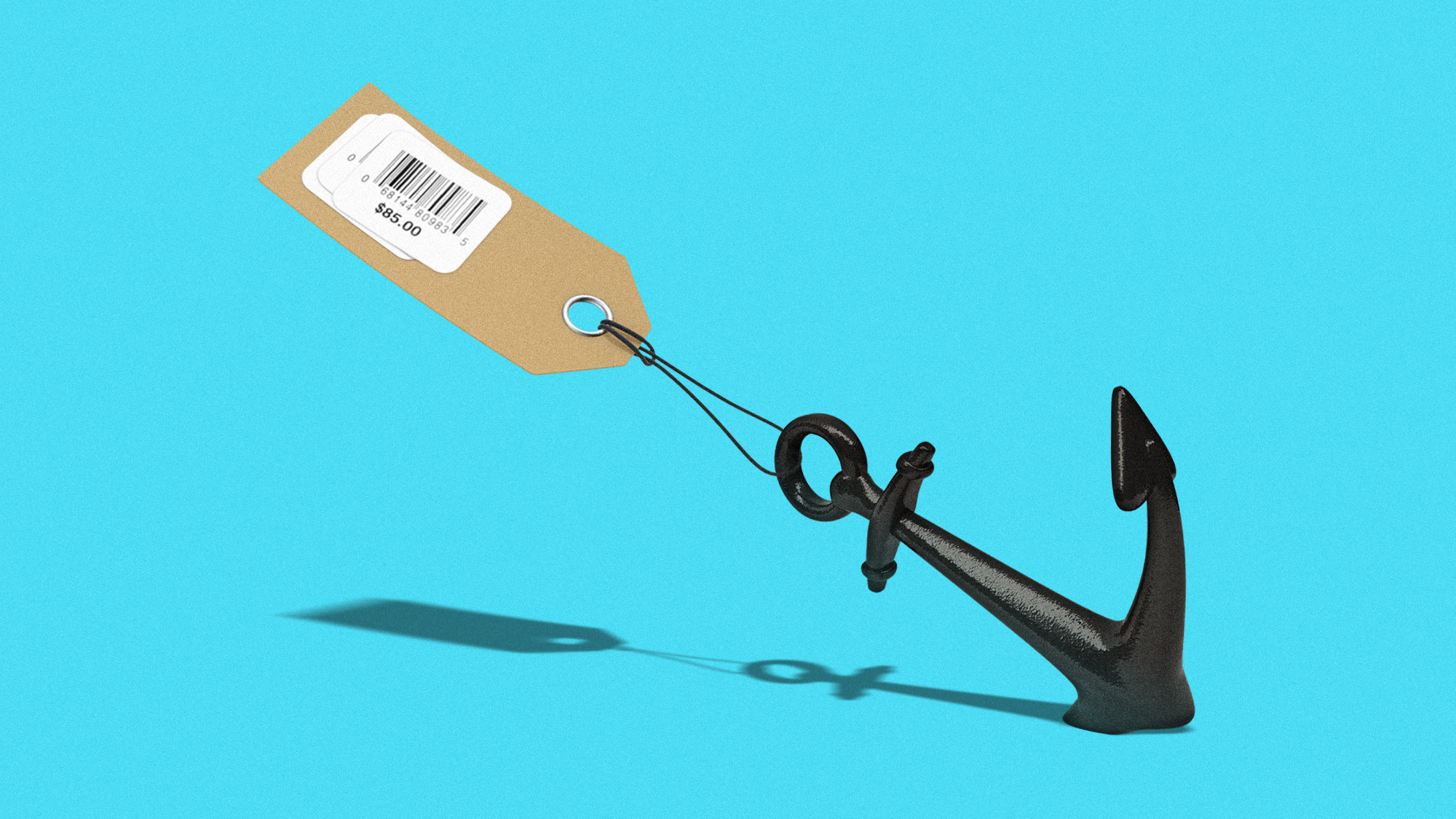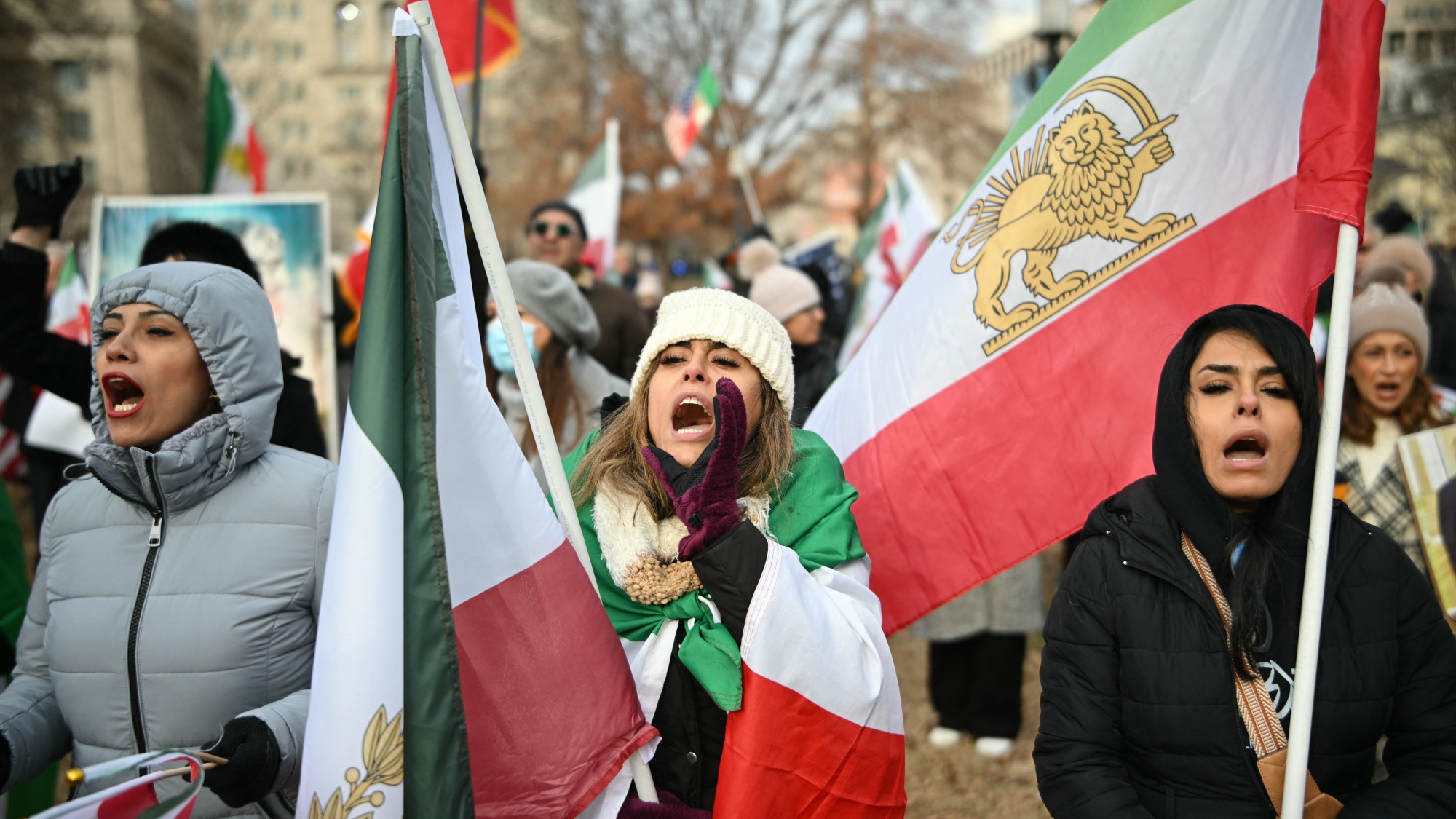How will Kamala Harris' ban on grocery price gouging work?
And can it bring down prices?


A free daily email with the biggest news stories of the day – and the best features from TheWeek.com
You are now subscribed
Your newsletter sign-up was successful
Why are grocery prices so high? Is it corporate greed, or market forces at work? Kamala Harris is betting on greed. The Democratic presidential nominee "has laid the blame for high food prices at the feet of businesses," said The Wall Street Journal, and vows to tackle "price gouging" in the grocery sector if elected. "My plan will include new penalties for opportunistic companies that exploit crises and break the rules," she said. The measure is aimed at voters angry about the rising cost of a gallon of milk.
"Harris hasn't provided much detail" about how the plan would work, Axios said. Her opponent, Donald Trump, charged her with proposing "Soviet-style price controls," and other critics have raised the specter of "black markets and hoarding" in response. But most states already have price-gouging bans that prohibit businesses from jacking up their profits during a crisis like a hurricane or pandemic. If Harris' proposed federal ban is like those state laws, "only triggered by emergencies and targeted to specific firms," her proposal might not affect day-to-day grocery prices all that much.
Stores 'raising prices faster than costs'
"Harris' plan to stop price gouging could create more problems than it solves," Elisabeth Buchwald said at CNN. That's partly because the "jury is still out" on whether price gouging actually raised grocery prices in recent years. The "war in Ukraine, government spending and pandemic-related disruptions" like the supply chain crisis all played a role. Even then, one economist said, markets usually work out the kinks: When prices rise, the "best policy action in response is actually taking no action."
The Week
Escape your echo chamber. Get the facts behind the news, plus analysis from multiple perspectives.

Sign up for The Week's Free Newsletters
From our morning news briefing to a weekly Good News Newsletter, get the best of The Week delivered directly to your inbox.
From our morning news briefing to a weekly Good News Newsletter, get the best of The Week delivered directly to your inbox.
"Harris is right," Michael Hiltzik said at the Los Angeles Times. Financial disclosures showed pretax profit margins at Albertsons nearly tripled during the pandemic, and rose significantly at Kroger as well. That suggests the grocery chains were "raising prices faster than their costs." Was it gouging? A federal investigation said no. But it's clear that "corporate profiteering was unmistakably a significant contributor to inflation" during and after the pandemic.
'Kamunism?'
Harris' allies say her price-gouging plan has been "misconstrued" by GOP critics, said The Washington Post. There have been some misunderstandings, said one former Treasury official, but "part of it is just malicious attacks from the other side trying to characterize her as a socialist." Campaign surrogates have moved to reassure businesses interests that the aim is not to "impose a sweeping new governmental regulatory regime."
Still, the pushback has been fierce enough — The New York Post labeled Harris' plan "Kamunism" — that some prominent Democrats have been "hesitant" to specifically defend the price-gouging plan, said Politico. "There are a whole host of proposals that she has put forward," Illinois Gov. J.B. Pritzker told CNN's Jake Tapper, adding that the "whole panoply of them honestly is good for average everyday working Americans."
It's unlikely that Harris can bring grocery prices down, said The Associated Press. After all, it's "unclear how much price gouging is going on right now." Year-over-year grocery inflation was just 1.1% in July, about the same as before the pandemic. That means the price of that gallon of milk is rising slowly instead of quickly, which might not satisfy voters. But prices that go up rarely go down again — and usually in "steep, protracted recessions." That's probably not in Harris' plans.
A free daily email with the biggest news stories of the day – and the best features from TheWeek.com
Joel Mathis is a writer with 30 years of newspaper and online journalism experience. His work also regularly appears in National Geographic and The Kansas City Star. His awards include best online commentary at the Online News Association and (twice) at the City and Regional Magazine Association.
-
 Local elections 2026: where are they and who is expected to win?
Local elections 2026: where are they and who is expected to win?The Explainer Labour is braced for heavy losses and U-turn on postponing some council elections hasn’t helped the party’s prospects
-
 6 of the world’s most accessible destinations
6 of the world’s most accessible destinationsThe Week Recommends Experience all of Berlin, Singapore and Sydney
-
 How the FCC’s ‘equal time’ rule works
How the FCC’s ‘equal time’ rule worksIn the Spotlight The law is at the heart of the Colbert-CBS conflict
-
 Big-time money squabbles: the conflict over California’s proposed billionaire tax
Big-time money squabbles: the conflict over California’s proposed billionaire taxTalking Points Californians worth more than $1.1 billion would pay a one-time 5% tax
-
 Did Alex Pretti’s killing open a GOP rift on guns?
Did Alex Pretti’s killing open a GOP rift on guns?Talking Points Second Amendment groups push back on the White House narrative
-
 ‘Implementing strengthened provisions help advance aviation safety’
‘Implementing strengthened provisions help advance aviation safety’Instant Opinion Opinion, comment and editorials of the day
-
 Washington grapples with ICE’s growing footprint — and future
Washington grapples with ICE’s growing footprint — and futureTALKING POINTS The deadly provocations of federal officers in Minnesota have put ICE back in the national spotlight
-
 Trump’s Greenland ambitions push NATO to the edge
Trump’s Greenland ambitions push NATO to the edgeTalking Points The military alliance is facing its worst-ever crisis
-
 ‘The surest way to shorten our lives even more is to scare us about sleep’
‘The surest way to shorten our lives even more is to scare us about sleep’Instant Opinion Opinion, comment and editorials of the day
-
 Why is Trump threatening defense firms?
Why is Trump threatening defense firms?Talking Points CEO pay and stock buybacks will be restricted
-
 Unrest in Iran: how the latest protests spread like wildfire
Unrest in Iran: how the latest protests spread like wildfireIn the Spotlight Deep-rooted discontent at the country’s ‘entire regime’ and economic concerns have sparked widespread protest far beyond Tehran
